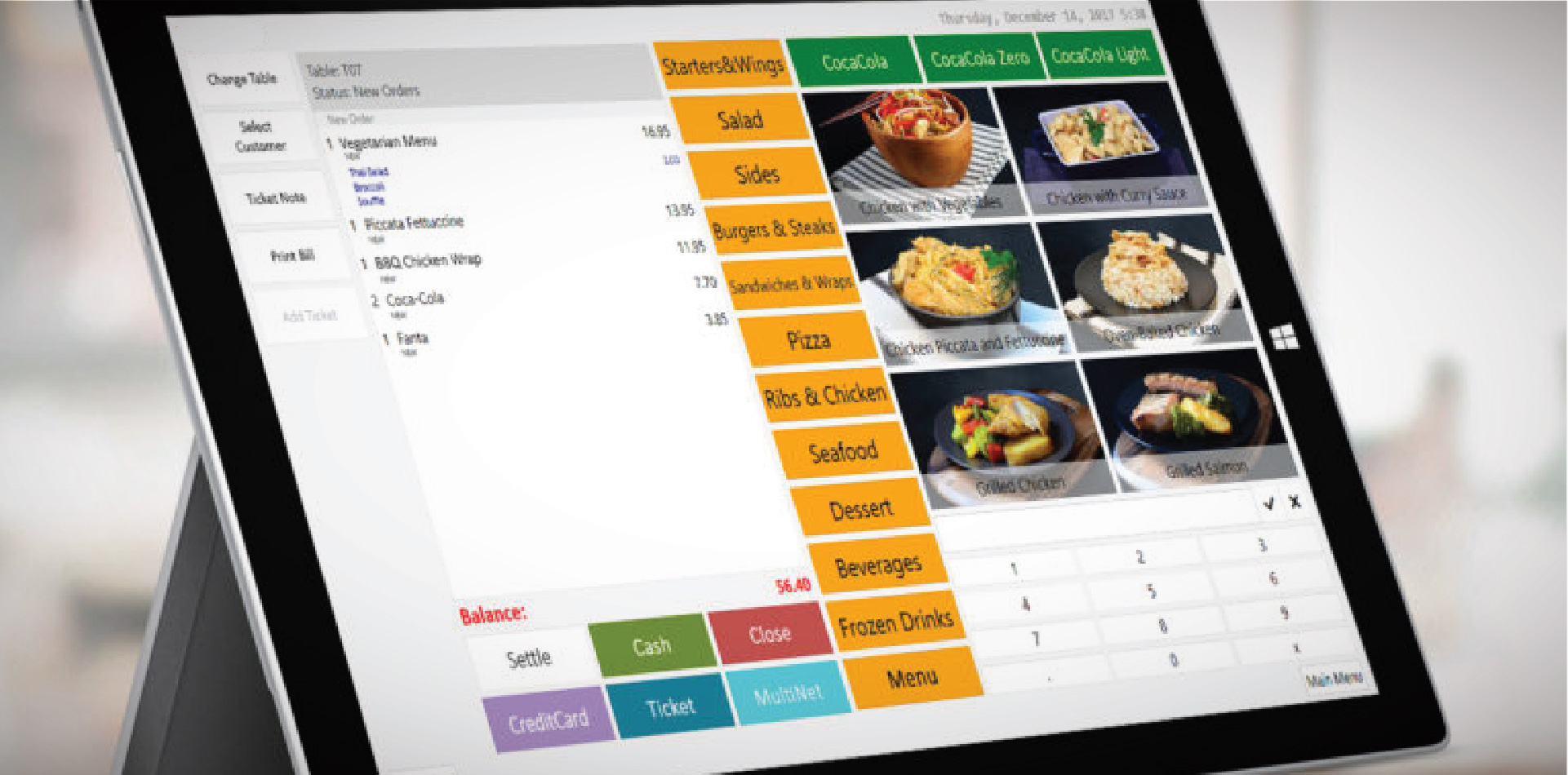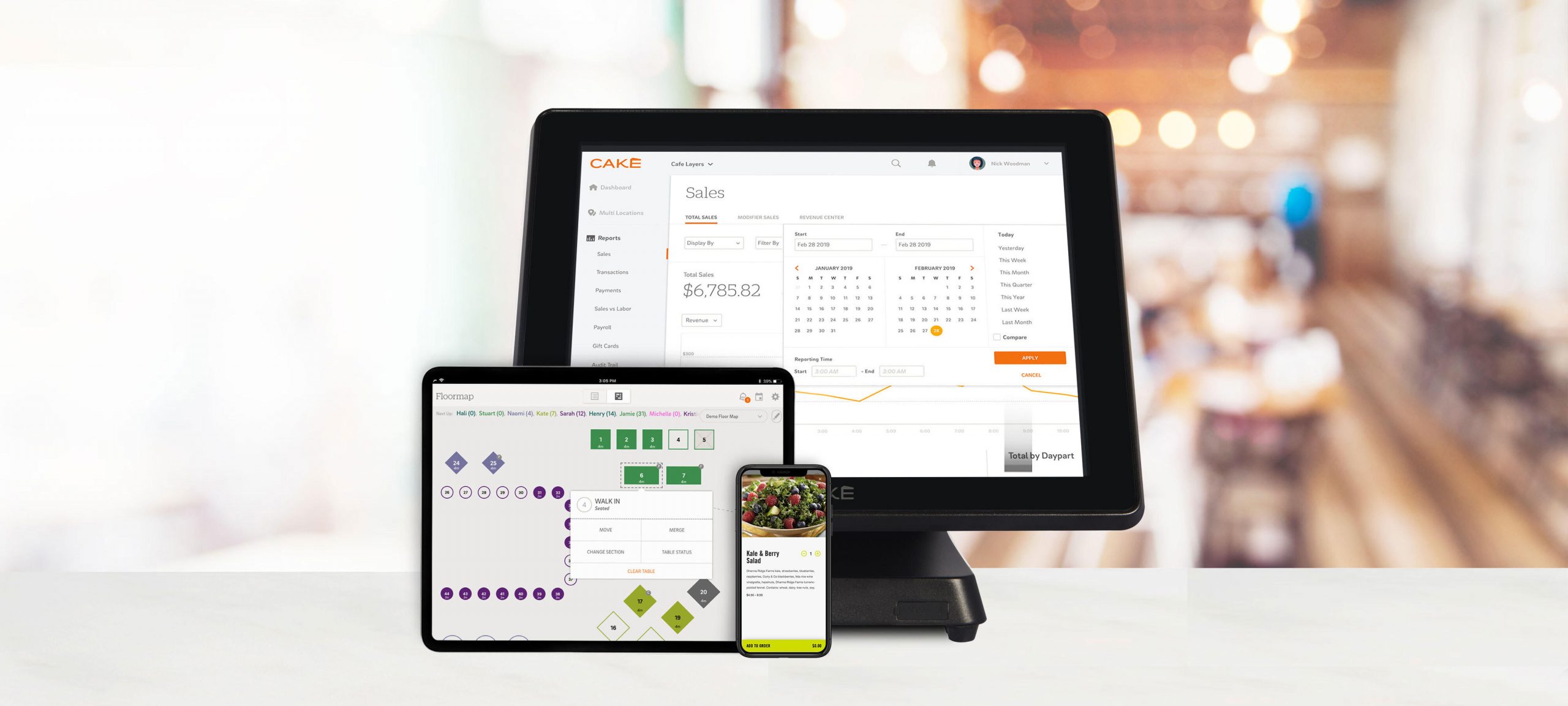Integrated restaurant management programs are one of the most important tools for success for any restaurant that seeks to excel and compete in a changing market.By unifying operations, analyzing data, and improving customer service, these systems help raise work efficiency and achieve profits.Therefore, investing in an integrated restaurant management program is not just a technical luxury.Rather, it is a strategic necessity for any restaurant that wants growth and sustainability.What are the most prominent components of this program? This is what we will learn about in this article.

The concept of an integrated restaurant management program
An integrated restaurant management program means a comprehensive technical system used to simplify and improve all aspects of restaurant operation.This program includes tools for managing orders, organizing inventory, scheduling employees, preparing financial reports, following up on sales, and providing customer service.The restaurant management program aims to raise efficiency, reduce errors, and improve Customer experience by integrating all processes into one easy-to-use interface This type of program is essential for modern restaurants seeking growth and expansion while maintaining quality service and careful management.
Components of an integrated restaurant management program
An integrated restaurant management program provides a comprehensive and easy-to-use solution for various aspects of work, which increases the efficiency of operations and enhances the customer experience.Below are the most prominent components that must be available in an integrated restaurant management program:
1. An effective and easy-to-use point of sale (POS) system
One of the most important components of an integrated restaurant management program is the point of sale (POS) system.This system allows orders to be managed in a fast and accurate manner, as workers can receive orders, record them, and send them to the kitchen without errors or delays.The system also features a simple and smooth interface that suits all users.Whether they are new or experienced employees, which reduces training time and increases performance speed.
2. Automatically manage inventory
Inventory management is considered one of the major challenges in restaurants, as material shortages or damage affect the quality of service and increase costs.The restaurant management system provides the feature of automatic inventory tracking, as the quantity of materials used and remaining materials is updated immediately with each sale.The program can also alert officials.When certain quantities are low, they must be ordered at the appropriate time, which helps reduce waste and ensure the availability of everything necessary.
3. Organizing staff schedule and monitoring attendance
Providing an organized schedule for employees is considered one of the factors that improve the workflow within the restaurant.An integrated restaurant management program allows the ability to schedule shifts, track working hours, and calculate wages based on attendance and departure.This feature reduces human errors and helps improve human resources management.It also enables The manager can know the performance of each employee and track any problem that may arise during working hours.
4. Accurate reports and analysis
For the success of any restaurant, it is necessary to analyze data periodically to make correct decisions based on reliable information.An integrated restaurant management program provides detailed reports that include sales, employee performance, best-selling items, and busiest times.This data helps managers improve the business plan and enhance marketing.And adjust prices to suit the market.
5. Support online ordering and delivery system
With the increasing demand for digital services, it has become necessary for an integrated restaurant management program to support the feature of receiving orders online.Customers can easily order food through phone applications or the website, and the best program for restaurants and cafes links these orders directly with the restaurant’s internal system.It also facilitates An integrated restaurant management program that manages delivery operations and tracks orders until they reach the customer at the right time and in excellent condition.
6. Customer Relationship Management (CRM)
Another important component of an integrated restaurant management program is the customer relationship management system, which allows storing customer data, tracking their preferences, and sending them special offers and discounts in a targeted manner.This feature helps build a loyal customer base and motivate them to return frequently through loyalty and communication programs.Continuous.
7. Integration with different payment systems
For the convenience of customers, an integrated restaurant management program must support various payment methods such as credit cards, digital wallets, and cash payment.The presence of this integration facilitates the payment process, speeds up the completion of orders, and increases customer satisfaction.The program also provides accurate financial reports that help in money management.better.
8. Easy customization and compatibility with restaurant size
Integrated restaurant management software is usually flexible and customizable, as it can be modified to suit the size and type of restaurant, whether small or a large multi-branch chain.This allows small restaurants to benefit from professional features without the need for huge investments, while enabling large restaurants to manage their complex operations efficiently.
9. Technical support and continuous updates
It is important to have a complete restaurant management software supported by outstanding customer service and a technical support team ready to solve any problem that arises. The most prominent cafe management software should also receive periodic updates that add new features and improve performance, while maintaining data security and protecting sensitive information.
10. Enhance customer experience
Ultimately, the primary goal of an integrated restaurant management program is to improve the customer experience.Through the speed of service provision, accuracy of orders, availability of dishes, and ease of payment, the customer feels satisfied and comfortable, which raises the restaurant’s reputation and increases the chances of success and growth in a competitive market.
11. Manage tables and reservations
Managing tables and reservations in an integrated restaurant management program is considered one of the basic pillars that contribute to organizing the workflow within the restaurant effectively.The system allows the possibility of allocating and reserving tables in advance, which helps improve the customer experience by reducing waiting times and ensuring that orders are met accurately.
The system can also follow the status of tables in real time, whether they are reserved, occupied, or available, which makes it easier for employees to organize the flow of customers with high efficiency.In addition, the reservation management feature supports sending confirmations and alerts to customers, which enhances communication and reduces the possibility of absence.In short, table management and reservations in an integrated restaurant and cafbat management program provide precise control and high flexibility that contribute to raising the level of service and increasing customer satisfaction.
12. Offer management and loyalty
Managing offers and loyalty in an integrated restaurant management program is one of the basic pillars of motivating customers and enhancing the frequency of their visits.The program allows the preparation and organization of various promotional offers such as discounts, special meals, and free gifts, as appropriate for specific times or special occasions.The loyalty system also provides a mechanism for rewarding customers.Regular customers through pool points that are exchanged for rewards or discounts, which strengthens the relationship between the restaurant and customers and increases their satisfaction, thanks to these tools Restaurants can improve their marketing experience and increase sales in an efficient and organized manner.
Conclusion:
In conclusion, it can be said that the components of an integrated restaurant management program represent the backbone that ensures efficient workflow and high organization within the restaurant.These components, as we usually mentioned, include order management, inventory, human resources, billing, and accounting, in addition to performance reports and data analysis.Having an integrated program through which you can learn how to manage restaurant accounts will help you improve customer experience, reduce errors, and increase productivity And make the best use of available resources.
other topics:
reference:
1. << Management Accounting>>, businessnewsdaily
2. <<Restaurant Point of Sale>>, globenewswire

Add New Comment